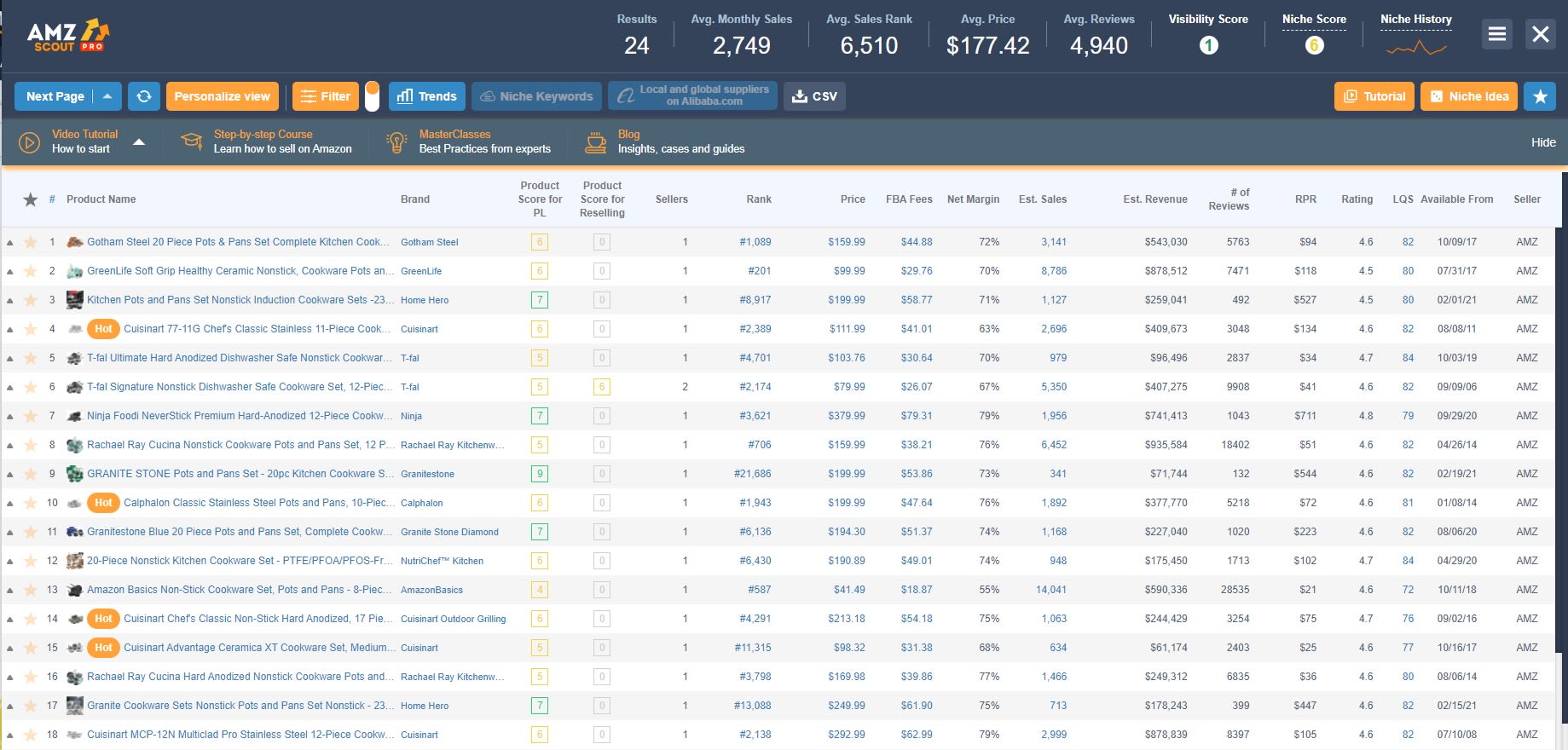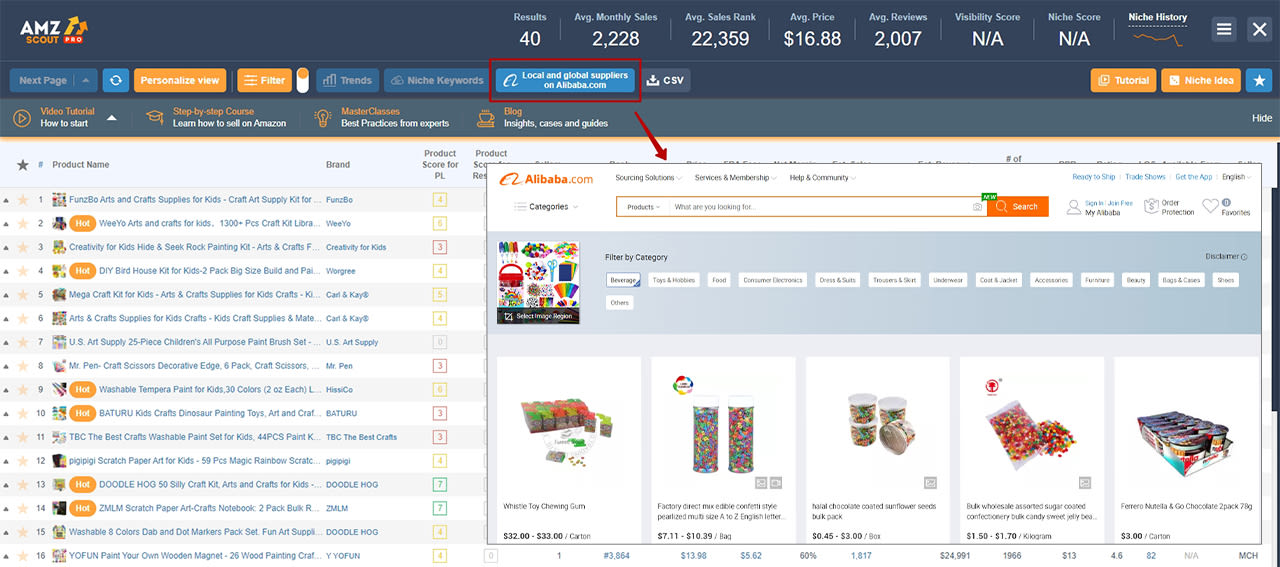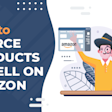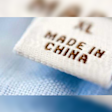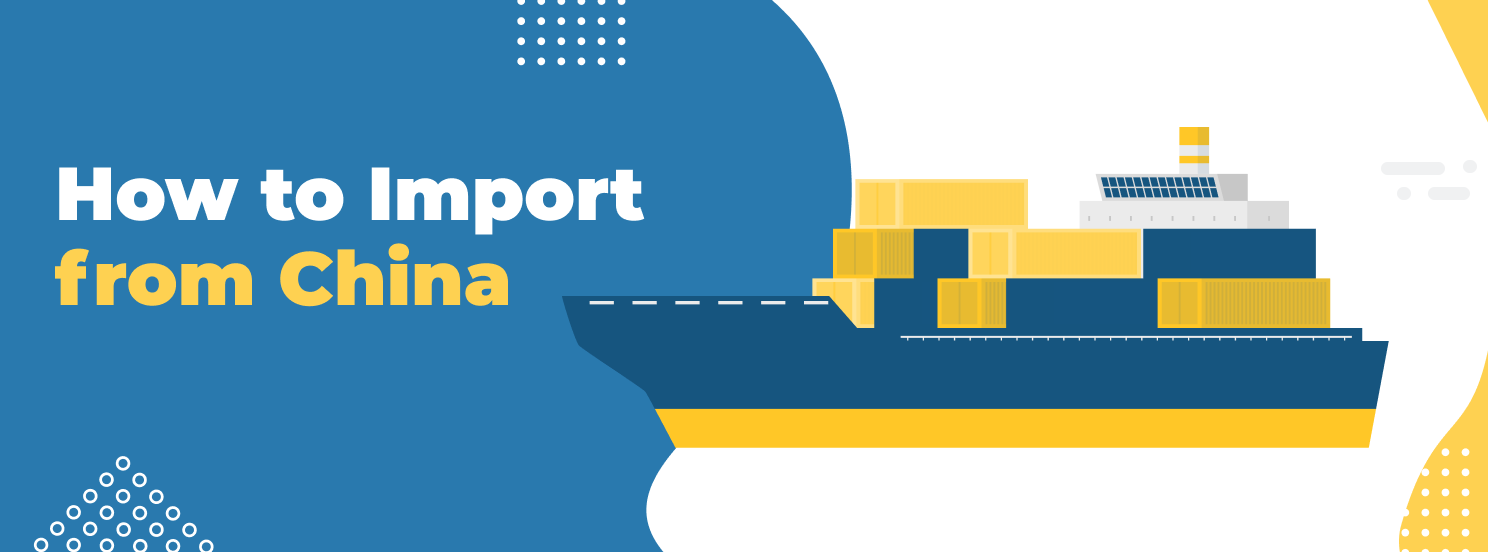
Buy from China: How and Which Products to Import
One of the biggest challenges new eCommerce sellers face is sourcing products. Luckily, technology has made it easier than ever to find overseas suppliers, negotiate a deal, and get your products shipped to you.
There are many places you can source products from (the US, India, Japan, etc.), but most sellers buy from China. In this article, we’ll explain why that is and how to do it yourself.
Table of contents
Keep reading to learn everything you need to know about how to import from China.
Why Is It a Good Idea to Buy Products from China?
Before we begin, you might wonder why you should source your products from China. If you're based in North America or Europe, wouldn't it be easier to deal with a local supplier?
Well maybe, but you’d miss out on several key benefits. Here are a few reasons to import items from China:
1. Prices Are Low
The primary reason many sellers choose Chinese suppliers is cost-effectiveness. China's manufacturing value-added reached $4.67 trillion in 2024, accounting for 27.7% of the global total, which is more than the next four largest manufacturing economies combined. This dominance is driven by lower labor costs and efficient supply chains, which translate into reduced production expenses.
2. Better Production Lines
China specializes in mass-producing products. Because of this, their production lines are more sophisticated and they can produce a large number of items faster.
3. High Quality
There's a common misconception that made-in-China products are of low quality. While some substandard goods exist, China's manufacturing prowess has led to significant advancements in various industries. For instance, China's output of solar cells reached 0.68 billion kilowatts in 2024, up by 15.7% from the previous year, showcasing its commitment to high-quality production.
4. Global E-commerce Leadership
China's e-commerce market is unparalleled. In 2025, online retail sales in China reached $1.53 trillion, accounting for nearly half of global online retail volume. This dominance is supported by platforms like Taobao, Tmall, JD.com, and Pinduoduo, which facilitate efficient sourcing and purchasing.
In summary, if you're seeking high-quality products at competitive prices, China remains a top choice for sourcing.
Import Regulations
Importing items from China isn’t difficult, but there are some regulations you’ll need to follow. Every country has its own rules, so make sure you’re familiar with your local import laws before getting anything shipped to you.
No matter where you live you’ll likely deal with the following regulations:
You or your supplier will have to file entry documents for the goods.
You’ll have to pay duties on your products.
Your goods will be examined upon entry to ensure they don’t pose a safety risk.
The following types of products are banned from being imported in most countries:
Agricultural commodities
Weapons
Food
Drugs
Toxic chemicals and hazardous substances
Counterfeit products
Some electronics
Here’s a quick rundown of some specific regulations for the USA, Canada, and Europe:
1. USA
To import products into the US, you’ll either need an Employer’s Identification Number (EIN) or a social insurance number. If you’re importing goods under a business then you should have an EIN for tax purposes. You can apply for one here. If you’re operating as an individual and don’t have a business you can just use your social insurance number.
Regulatory & Policy Update: End of the "De Minimis" Exemption
As of August 29, 2025, the U.S. has permanently ended the "de minimis" exemption, which previously allowed low-value shipments (valued at $800 or less) to enter the country duty-free. In fiscal year 2024, approximately 1.36 billion such shipments, totaling $64.6 billion in value, were imported under this exemption, with about 73% originating from China.
The removal of this exemption subjects all low-value imports to applicable tariffs, which can range from 10% to 50% or a flat fee between $80 and $200 per package, depending on the country of origin. This policy shift aims to address concerns over trade imbalances and the influx of counterfeit or illicit goods. However, it has led to significant disruptions in global shipping flows, with over 80% of international postal traffic to the U.S. being suspended as of early September 2025.
Businesses and consumers should be aware of these changes, as they may impact the cost and delivery times of imported goods.
2. Canada
If you plan to import into Canada you’ll need an import/export business license. This will be used to process your customs documents. To avoid any delays in receiving your goods make sure to have this number before you import any products. You can get an import/export business number from the Canada Revenue Agency.
3. Europe
If you’re importing goods into Europe you need to be established in the EU and have an EORI number. One EORI number will allow you to import into any country in the EU. While you don’t need to be established in the UK to import into the country, you do need an EORI number. You can request an EORI number from your local customs website.
How to Import Products from China
Now that you know why you should import from China and the rules you need to follow, it’s time to go over how to actually do it. While it may seem intimidating at first the process is surprisingly easy.
Here are the steps you need to take:
1. Choose a Product
Before you find a supplier you need to decide what you’re going to sell. Make sure to take your time and choose the right product. Not every item is profitable to sell so you’ll want to do a fair bit of research before making your decision.
Below is the Amazon product criteria. If you sell on other platforms, the criteria may differ slightly, because there is usually less competition, but also less traffic.
At least 300 monthly sales. This tells you there’s demand for the product.
Less than 100 reviews. This means competition is low.
A sales price of $35 - $75. This is high enough for you to make a good profit but still low enough so people don’t have to think too much before buying it.
Small and light. Shipping and Amazon FBA costs are based on size and weight, so items that are small and light are cheaper to sell.
There are a number of product research tools that will tell you this information. For example, if you’re selling on Amazon you can use AMZScout.
If you’re selling on another platform just make sure whatever you’re using provides you with the data you need to make an informed decision.
Some examples of good products to import from China include:
Kitchen utensils
Yoga mats
Resistance bands
LED lights
Any small products that can be given as gifts
Make sure to do your own research and find a product that works for your business.
2. Look for Suppliers
Once you’ve chosen a product it’s time to start shopping around for a supplier. There are a few different places you can look:
Trade Shows: If you want to speak to suppliers in person, trade shows are the best way to do that. However, this method is time-consuming and expensive, since you need to actually travel to the shows.
Google Search: If you’re comfortable speaking to suppliers online then you might be able to find one through a Google search. Just keep in mind that a lot of factories don’t have a large online presence and can be difficult to find through this method.
Alibaba: This is by far the easiest way to find suppliers. Alibaba features thousands of suppliers and wholesale companies in many different niches. They also have certifications and a rating system to help you identify the best ones.
If you’re selling on Amazon using AMZScout’s PRO AI Extension to search for products, just click the “Suppliers” button within the tool. You’ll get a list of all the suppliers for that product on Alibaba and can sort them based on price and rating.
Take some time and find three or four suppliers that you think will suit your needs.
3. Vet Your Suppliers
After you have a few you’re interested in you’ll need to do your due diligence to ensure you choose one that will meet your expectations.
Here are a few steps you should take:
Ask Them Questions: Because of the language barrier many suppliers prefer to communicate over email. But if possible it’s always good to get on a phone call with them. Ask them questions about their products, factory, and anything else you feel is relevant.
Get a Sample: Any good supplier will be happy to send you a sample of their items. The sample is usually free but you’ll have to pay for the shipping. This gives you the chance to inspect the quality of their products to ensure they’re up to your standards.
Do Your Homework: It’s a good idea to do some digging to make sure you’re dealing with an upstanding company. You can go to China Trial Process Information Disclosure Website or China Judgments Online to see if there are any outstanding lawsuits against them. If you’re looking on Alibaba check to see what their rating is and what certifications they have.
If you take these three steps you should stay safe and find a trustworthy supplier you can count on.
4. Get a Quote
After you choose a supplier you like it’s time to get a quote. The company may be great, and their product might be top-notch, but if they can’t offer you a price that works with your budget then you’ll need to look elsewhere.
An important thing to remember is that any quote you receive is negotiable, so don’t just accept the first number you get. If a supplier wants your business bad enough they’ll usually lower their price for you.
There are two quotes you need to get:
The Cost of the Products: This is the total you’ll pay for all the goods you’re ordering from them. Keep in mind that the higher quantity you order the better price per item you get.
Shipping Costs: When you get a quote make sure to ask if it includes shipping. Most suppliers will arrange this for you but sometimes you might have to coordinate it yourself. Shipping can be expensive, so be sure you know how much it will cost before you place your order. You can either ship by air, which is faster but more expensive, or ship by sea, which is slower but more cost-effective.
If you’re happy with the quote then tell them to start production. Depending on the product and the quantity this can take a few weeks to a month.
5. Pay Your Supplier
The most common payment terms are 30% of the total cost upfront and then the other 70% once the order is completed. Don’t ever agree to pay 100% upfront, especially if you’ve never worked with a supplier before.
Verified payment methods like PayPal or credit card are ideal. However, for orders larger than $5,000 you’ll almost always have to pay by wire transfer. Most suppliers will only accept USD, so if you’re outside of the US you’ll need to factor in currency exchange charges as well.
6. Coordinate Local Shipping
As we mentioned earlier, in most cases your supplier will take care of shipping for you. If you’re fulfilling orders yourself then simply have your inventory shipped to your home and that’s the end of the process.
However, if you’re fulfilling your orders through a fulfillment service (like Amazon FBA) you’ll need to take some extra steps to ensure your inventory gets there.
If it’s your first time dealing with a supplier it’s a good idea to get the shipment sent to you first. That way you can inspect your items to ensure everything is in order. Once you trust your supplier you can have them direct your products straight to the distribution center.
Before sending anything to a fulfillment service make sure you read the instructions they provide. You often need to include special labels in order for your shipment to be accepted.
If you want to simplify things you can hire a logistics provider. They’ll manage your shipping from China all the way to its final destination. They can also help you deal with customs, duties, and other steps that come with importing goods.
Tips
Before you start searching for suppliers here are a few more tips to consider:
1. Get Quotes from Multiple Suppliers
If you’ve never ordered a certain product before you might not have a good idea how much it should cost. That’s why it’s always a good idea to get more than one quote. Ideally three or four. This allows you to identify products that are overpriced or suspiciously underpriced.
2. Don’t Always Go for the Lowest Price
Just because something is the cheapest doesn’t mean it’s the best. Remember, you usually get what you pay for. It’s better to sell a product that costs a little but is good quality, rather than one that’s super cheap but disappoints your customers.
3. Avoid Duties
Orders with a value of under $800 aren’t subject to duties. Depending on your product and quantity size it might not be possible to get the cost this low. But if you can it’s a great way to save some extra money.
Conclusion
Finding suppliers and sourcing products are two of the biggest steps involved in running a successful eCommerce business. If you can master this process you’ll be making sales in no time.
FAQs
Can I buy stuff directly from China?
Yes, individuals and businesses can buy directly from China. Many suppliers sell through platforms like Alibaba, Made-in-China, and DHgate. Direct purchasing often means lower prices, but buyers should research suppliers carefully, verify credibility, and factor in shipping times, duties, and customs regulations before placing an order.
Can I order from China to the USA?
Yes, you can order products from China to the USA. Goods are shipped via air freight, sea freight, or courier services. Buyers should understand customs rules, taxes, and recent policy changes, such as the removal of the “de minimis” exemption in 2025, which makes low-value packages subject to tariffs and import duties.
What is the best website to buy from China?
The best website depends on your needs. For bulk wholesale, Alibaba and Made-in-China are top platforms. For smaller, consumer-focused orders, AliExpress and DHgate are popular. JD.com and Taobao are also growing globally. Buyers should compare pricing, shipping options, and supplier ratings to find reliable sellers and secure the best overall value.

